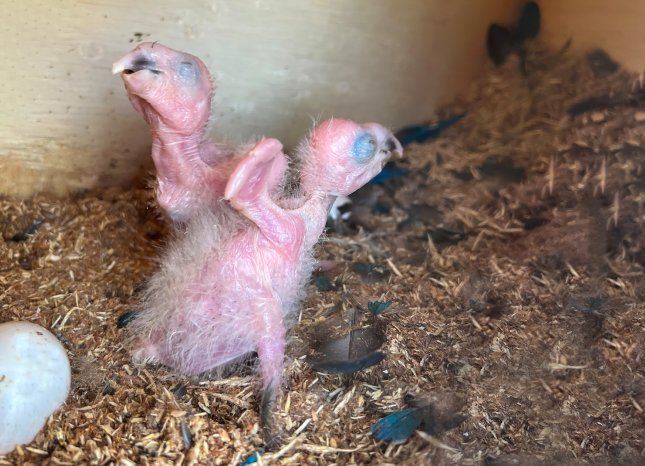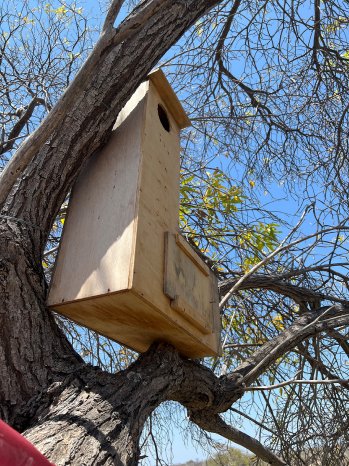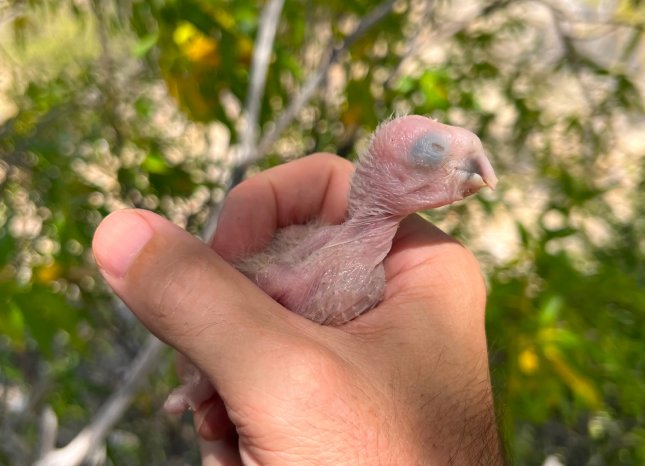The Spix’s Macaw Release Project's ultimate goal is to establish a breeding population of Spix's macaws in the wild. The last wild Spix's nest was spotted in 1986, 37 years ago, before the Spix's macaw became extinct in the wild.
A short recap
The journey to this achievement was arduous and began in 2000 when the last known wild Spix's macaw vanished, rumored to have fallen victim to power lines. This incident sent shockwaves through the bird conservation community, prompting a united effort. Collaborative endeavors between private breeders, zoos, and the Brazilian government aimed to bring together the remaining captive Spix's macaws to create a population that could one day be reintroduced into the wild.
Private aviculturists and scientists, armed with decades of captive breeding and management expertise, tirelessly worked to transform what once seemed an impossible dream into a reality. Their dedication and unwavering commitment to the cause made it possible to bring the Spix's macaws back from the brink of extinction.
In 2022, the German wildlife conservation association, the Association for the Conservation of Threatened Parrots e.V. (ACTP), and their partners pulled off the successful release of Spix’s macaws back into their former wild Caatinga habitat. The Spix’s macaw was no longer extinct in the wild. But there was still a goal that everyone was waiting to see achieved. The big question was: Would they breed in the wild?
Dr. Cromwell Purchase, Director ACTP Brazil and Manager of Spix's Macaw Release Center has the answer: "Today, we can proudly announce that this goal has been realized. A pair of Spix's macaws, a male released in June and a female in the December 2022 release, have hatched two chicks in their chosen nest. It is one of the artificial nests we have strapped high in a Caraibeira tree. The initial clutch of eggs proved infertile, but the pair's determination prevailed, and the second clutch contained two fertile eggs, leading to the hatching of two healthy chicks.“
The chicks are currently still in a critically sensitive and delicate stage. The pair of birds have become parents for the first time but have already successfully overcome the initial challenges. After hatching their eggs, they instinctively began to feed their offspring. This is remarkable news and a promising milestone for the species’ future.
This achievement is a testament to collaborative conservation efforts' enormous potential and demonstrates a species' resilience on the brink of extinction. This project serves as a reminder of the critical role of captive breeding programs in saving endangered wildlife. Dr. Cromwell Purchase is touched: “We thank the partners and supporters who have accompanied us on this remarkable journey. This historic breeding event provides hope and inspiration worldwide to join in protecting our planet’s biodiversity.”
More information on the Spix's macaw:
The Spix's macaw has been renowned worldwide since the film "Rio." The animal was discovered around 200 years ago by the German naturalist Johann Baptist von Spix. Its original home is the Brazilian Caatinga, a Savannah landscape in the northeastern federal state of Bahia. Today, the Spix's macaw is one of the rarest birds in the world. Due to its distinctive blue color, it became a popular target for poachers and collectors worldwide in the past. Man's destruction of its natural habitat and the illegal trade caused the population in the wild to decline steadily in the 1980s and 1990s until, in 1990, only one bird was living in the wild. Ten years later, the species was officially declared extinct in the wild by the International Union for Conservation of Nature (IUCN). Only a minimal number of privately owned birds worldwide had survived. Breeding seemed impossible as the genetic pool was too limited to maintain a healthy genetic diversity in such a small population.
About ACTP e.V. - Association for the Conservation of Threatened Parrots e.V.:
Association for the Conservation of Threatened Parrots e.V. (ACTP) is a registered non-profit association. The association was founded in 2006 and has its headquarters in Berlin. He dedicated himself to protecting, preserving, and building up endangered parrot populations and their habitats. In 2008, the association bred the first Spix’s macaws in Berlin. Association website: act-parrots.org
About ICMBio:
A federal agency responsible for the conservation programs in Brazil. It is the coordinator of the Spix’s-Macaw-Action-Plan and captive breeding program. It is the manager of the Spix’s macaw wildlife refuge and environmental protected area. Agency website: gov.br/icmbio/pt-br
hashtag: #spixsAreComingHome
more footage on YouTube and Vimeo




